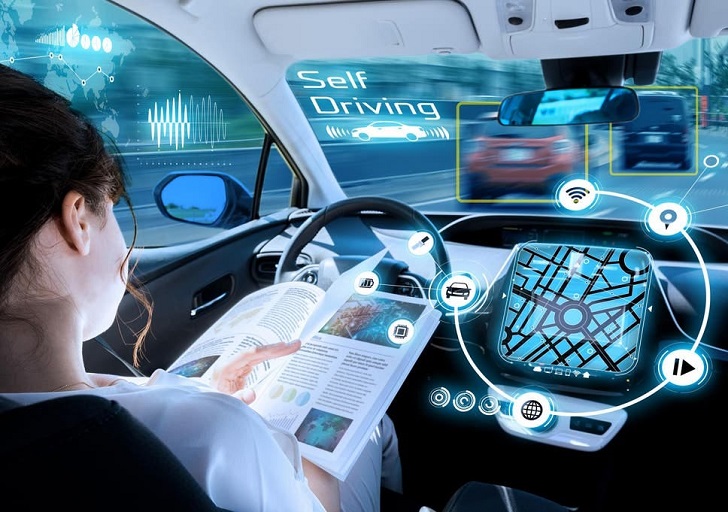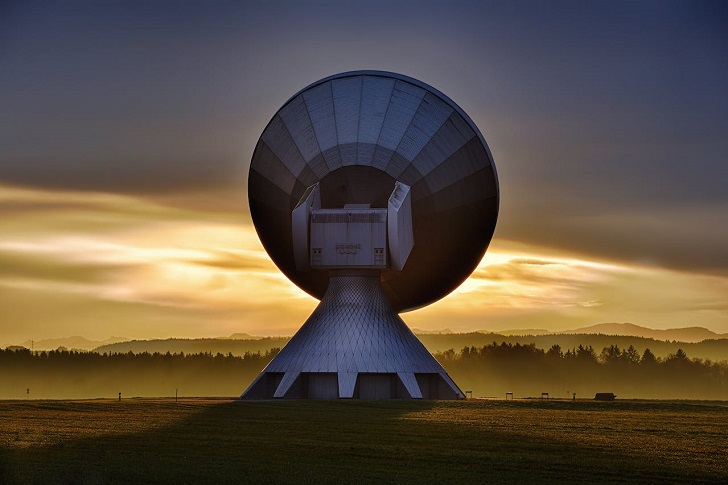AI is like the 21st-century superhero of tech—it’s been a game-changer in ways we couldn’t even imagine. It’s not just a tool; it's a whole new level of transformation that's reshaping how we do things. It’s like having a tech-savvy sidekick ushering us into a whole new era of possibilities.
It is not only revolutionizing the way we live and work but also shaping the future of technology in ways we could have never imagined. Today, we will be exploring the profound impact of AI on technology, highlighting its role in various sectors and the potential it holds for the future.

Maxim Titov/ Pexels | Machine learning and AI are not the future; they are the present
AI-Powered Automation
AI has paved the way for automation in various industries. Automation, driven by AI, has been a game-changer in manufacturing, logistics, and customer service. Robotics and machine learning algorithms have enabled machines to perform tasks previously done by humans, resulting in increased efficiency and reduced operational costs. For example, AI-powered robots now assemble factory products, reducing human error and improving precision.
Enhancing Data Analytics
AI is transforming data analytics. Machine learning algorithms can analyze vast amounts of data at speeds beyond human capability, leading to more accurate insights. Businesses use AI-powered analytics to make data-driven decisions, optimize operations, and gain a competitive edge. In the healthcare sector, AI is helping to analyze patient data, predict disease outbreaks, and develop personalized treatment plans.

Pixabay/ Pexels | Technology empowers us to dream beyond boundaries.
Personalization and Recommender Systems
AI-powered recommendation systems are like the wizards behind our online adventures. Think of big players like Amazon and Netflix—they’re using these brainy algorithms to peek into how we navigate their platforms. It's all about understanding what we like and then serving up those oh-so-perfect recommendations just for us.
Revolutionizing Healthcare
AI is revolutionizing healthcare by assisting in diagnostics, drug discovery, and patient care. Picture this: machine learning, the whiz-kid of algorithms, has this superpower to dive into medical images like X-rays or MRIs and nail diagnoses with mind-blowing precision.
It's like having a brilliant assistant for doctors, helping them spot diseases with an eagle eye. AI is also being used to develop new drugs and therapies faster by simulating molecular interactions and predicting potential drug candidates. Telemedicine is another area where AI plays a crucial role, allowing remote consultations and monitoring of patients.
Natural Language Processing (NLP)
NLP, a subfield of AI, is shaping technology by improving human-computer interactions. Smarter and more intelligent voice assistants are now more capable of understanding and responding to natural language queries (this includes the likes of Siri and Alexa).
This technology is also making strides in language translation, chatbots for customer service, and content generation. NLP is making our devices and software more user-friendly and accessible.

Pixabay/ Pexels | Artificial intelligence is the future of business.
AI in Transportation
The transportation industry is undergoing a major transformation with the integration of AI. Self-driving cars are a prime example of AI shaping technology in this sector. Companies like Tesla and Waymo are developing autonomous vehicles that rely on AI algorithms and sensors to navigate roads safely. AI is also optimizing traffic management, reducing accidents, and improving public transportation systems.
Cybersecurity
The battle against cyber threats has escalated with the help of AI. AI-driven cybersecurity systems can detect and respond to cyberattacks in real-time. They analyze network traffic patterns and behavior anomalies to identify potential threats and vulnerabilities. AI also plays a crucial role in developing robust encryption methods to protect sensitive data. As cyber threats evolve, AI continues to adapt and enhance security measures.
Environmental Impact
AI is being used to address environmental challenges. For example, AI-powered sensors and data analytics are helping in monitoring air and water quality. Machine learning algorithms optimize energy consumption in buildings and industrial processes, reducing carbon emissions. AI is also employed in climate modeling to predict and mitigate the effects of climate change.
Space Exploration and Research
AI is extending its influence beyond Earth. NASA and other space agencies use AI for mission planning, navigation, and data analysis. Autonomous robots powered by AI explore other planets and moons, collecting valuable data. AI also assists in processing and interpreting the vast amount of data collected from space telescopes and instruments.




